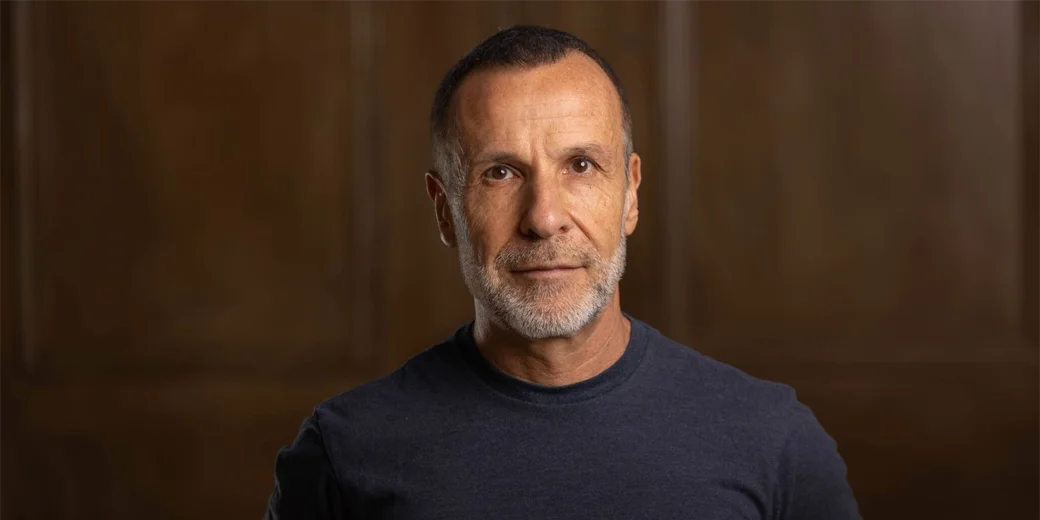*We are now accepting new clients for the 2026-27 cycle! Sign up here.
X
In this podcast, Spivey Consulting Group Founder and Partner Mike Spivey discusses commonalities between applicants who punch above their numbers. This podcast is also available on SoundCloud and Apple Podcasts.
Also be sure to check out My Rank, our tool for comparing and ranking law schools with according to your own priorities.
Hi, this is Mike Spivey with the Spivey Consulting Group, and I was asked by my Reddit family a wonderful question that's fun to answer: what are the traits of applicants who punch well above their numbers? Are there any common traits that — in our, you know, I think we have 175 years of experience in admissions at our firm — that we've tracked over time?
So, let me just start by saying that, when I was an admissions officer, and this still holds true today, I would bet a lot of money on just about every admissions officer out there — it's a great feeling to admit someone that you're their dream school. And it's late cycle, and they're below both medians, and you get to call them and, you know, sometimes they scream "mom" on the phone, or start crying in joy. We see that on this side now — we get to know our clients very well, and that's also a tremendous feeling. But let me get to the question. I'll give some examples. I'll give an example from, I think, my first or second year, so we're talking about the year 2000. My friend Justin — I can use his name; there's a blog about this story on our website; he's given full permission — he had a 152 LSAT, I believe, I was at Vanderbilt Law School, and he was the last person we took off the waitlist. When we took him off the waitlist — intentionally, obviously — a 152 at Vanderbilt was below what we had correlated with bar passage results, so there was a drop-off point where if you were below a certain LSAT, it showed that you were a lot less likely to pass the bar. But Justin had visited, and I got to know him during the visit. He visited with with his father; his father was a lawyer. His father said something along the lines of, "You know, hopefully, one day Justin would will come work for me," and Justin was like, "No way, Dad," you know, "I don't want to; I want to do it on my own." There's two ways that could have gone, but I could tell it was sincere. Justin played baseball, I believe in college, and he was a bouncer in college — so he worked, he was a student athlete, and he had a 4.0 GPA. You could just tell, you got the sense that, whatever his LSAT score was, he was going to punch above his numbers. He was one of those work-hard, dedicate, grind-it-out people. Well, what is he doing? Again, this was in 2000. So now he is the CEO of a venture capital firm, and gives tremendously back generously in different ways to Vanderbilt. He knew Vanderbilt took a chance on him, so he proved himself right — he's a tremendous success. An interesting side note is, he lives in the Chicago area, and I feel like anytime I'm within a 50-mile radius of Chicago he somehow knows, and I get a text and he's wanting to buy me dinner. So, you know, he got himself admitted, but he's still very, very grateful to this day.
Another example that came to mind, and research verifies this — research from the Journal of Human Resources says that, during interviews, for example, the best thing that you can have is something in common with the interviewer. Early in my career, I had a boss who was very data-centric, and we admitted someone very early with a low LSAT, and it sparked my interest because of how data-centric and slow we would go in the process, being mindful of data. Usually people well below medians get admitted later cycle. You want to admit to them, but you have to wait for your medians to be locked in. So turns out, my boss had a deep passion for a certain sport, and this person was an Olympic athlete in that sport. So that that was just luck of the draw. But certainly, this is why people should have interests sections on their resumes and show their personality and show what they've done. Just based on having that one commonality, this person was admitted.
So — those are two examples, and that's great; I'm sure they're illuminating. But I think what you all want to hear is traits. So, let me get to that. Let me tell you the one trait that doesn't work that so many applicants overuse, and that is, you can't will yourself into your dream school. You just can't do it. So most of the people listening to this podcast, most of the people we interact with, are very productive, driven people. Unfortunately, you can't just keep writing a law school a letter so many times that they will eventually say, "Wow, look at this person's productivity, we're going to admit them." There's a finesse to the process. So what I don't want people doing, because I see it far too often, is over-spamming/over-pushing the admissions office. That actually goes south; that doesn't help you punch above your numbers.
For me, personally, and someone mentioned this on Reddit, so they kind of nailed it — the number one trait I've seen doing this is I would call ebullience. So people who, at least from my experience seeing this, tend to be part of that group that punch above their numbers. I had a client last cycle with an LSAT score in the mid 160s, who got into something like 6 of the top 14, including Harvard. It might have been 5 of the top 12, so I might be slightly — but this client is at Harvard right now, again, with no diversity characteristics. And nothing, like, amazing. I would guarantee that she nailed the Harvard interview. Our strategy, I think, was just to get her waitlisted. For some of our clients, when you're well below a median, you want to, I call it "moves management" — you're probably not going to get admitted right away, so you almost play a strategy (I'll do another podcast on this) to get waitlisted, and then you can use that later in the cycle to get admitted to the school where you're 15 points below the median, or 10 points below the median. So the way I would describe her is — she had a lightness about her. There are people you've seen in this world, they bring an internal light with them, so you want to be in their presence. And even though I never met her, just talking to her on the phone, she was eternally lit up. Not in the spazzy way, but in an optimistic, charming way. So ebullience would be one.
I'm going to just read what my partner Derek Meeker, who was the Dean of Admissions at Penn, wrote, because I think this kind of nails the other highly common element of it. What Derek wrote is: "Absent diversity or highly unusual and interesting experiences, the common denominator among all or nearly all of my clients who outperformed their numbers boiled down to this: maturity, self-awareness, and professionalism. They presented applications that conveyed a clear sense of how they got to where they are now and where they want to go. I've had numerous couldn't be less diverse or more ordinary clients," — alright, keep this in mind, this is important — "many K-JDs, punch above their numbers, for example get admitted to top 10 schools, and I firmly believe it is because their applications read as: mature, knows why they are doing this and how they will add value, i.e., they're low maintenance, easily employable people."
Another point that my business partners brought up when we were discussing this is, law school admissions officers are people. I mean that's obvious, but it's important to see them as that, because you want that person to project you at their law school. In their mind, they want to be able to see you as being able to be at their law school. So I guess in terms of traits, that would be what Derek's talking about: professional, mature, we're gonna say calm a lot. We have. Calm and unflappable, upbeat, all of these things. Anyone who sounds frantic, even if you're frantic on Reddit and it can be traced back to you — if you post your numbers and then three months later you're freaking out online, and schools will figure that out by the way — those are the things where people punch below their numbers. But when you're just an upbeat, mature, professional — professionalism is very attractive to other professionals — that is a trait that gets people admitted to law school.
I should note that things vary from cycle to cycle. In all our years when we were talking about this, one of the things we mentioned to ourselves is that, in some cycles you see more people punching above their numbers, and some cycles you see less. And you see different things stand out in different cycles: in some cycles it's work experience; in some cycles it's a lot of the people who visit who showed these characteristics and traits I was just talking about. I want to also, before I conclude, say that one of the common characteristics of people who punch above their numbers is that they apply not just to their dream schools, but they have realistic expectations, and they apply to a set of schools — safeties and target schools. I think that goes along with self-awareness.
So let me just recap. Being upbeat and unflappable, being mature, being professional. Self-awareness is so important, because every part of your application is reflected when you're self-aware. And I hope everyone understands what I mean by that. Knowing yourself, in a sincere fashion, is good. Sometimes you can catch a break and get lucky if you have something very much in common with the person reading your file, or — and I'm not exaggerating — if the person reading your file just happens to be in a good mood that day and you have a little bit in common with them, you can catch a break and punch well above your numbers. Sometimes it's actually untraceable. I had a client with a score in the very low 150s, not diverse, nothing totally exceptional, except I would say his personal statement was unique. It was a topic I had never heard before, and when you've done this 20 years, you've heard just about every topic. And he got into a top 16 school/top 17 school with an LSAT in the low 150s, and I think it was just because the personal statement was so differentiated. So, if I'm going to add one more — and then I'm going to end this this podcast; I don't want it to go too long — it would be, you know, differentiation always helps. Positive differentiation always helps in admissions. Having some cool story in your personal statement that stands out, that shows reflection and introspection, always helps in admissions.
If you found this podcast, you know where we are on YouTube. You can find our blog on www.spiveyconsulting.com. There's hundreds upon hundreds of blog articles of free advice there. If you need a pick-me-up or inspiration, I now have a sort of motivational blog, it's www.spiveyblog.com. And thank you for listening to our podcast and for that great question.


In this episode of Status Check with Spivey, Dr. Guy Winch returns to the podcast for a conversation about his new book, Mind Over Grind: How to Break Free When Work Hijacks Your Life. They discuss burnout (especially for those in school or their early career), how society glorifies overworking even when it doesn’t lead to better outcomes (5:53), the difference between rumination and valuable self-analysis (11:02), the question Dr. Winch asks patients who are struggling with work-life balance that you can ask yourself (17:58), how to reduce the stress of the waiting process in admissions and the job search (24:36), and more.
Dr. Winch is a prominent psychologist, speaker, and author whose TED Talks on emotional well-being have over 35 million combined views. He has a podcast with co-host Lori Gottlieb, Dear Therapists. Dr. Winch’s new book, Mind Over Grind: How to Break Free When Work Hijacks Your Life, is out today!
Our last episode with Dr. Winch, “Dr. Guy Winch on Handling Rejection (& Waiting) in Admissions,” is here.
You can listen and subscribe to Status Check with Spivey on Apple Podcasts, Spotify, and YouTube. You can read a full transcript of this episode with timestamps below.


In this episode of Status Check with Spivey, Mike interviews General David Petraeus, former director of the Central Intelligence Agency and Four-Star General in the United States Army. He is currently a Partner at KKR, Chairman of the KKR Global Institute, and Chairman of KKR Middle East. Prior to joining KKR, General Petraeus served for over 37 years in the U.S. military, culminating in command of U.S. Central Command and command of coalition forces in Afghanistan. Following retirement from the military and after Senate confirmation by a vote of 94-0, he served as Director of the CIA during a period of significant achievements in the global war on terror. General Petraeus graduated with distinction from the U.S. Military Academy and also earned a Ph.D. in international relations and economics from Princeton University.
General Petraeus is currently the Kissinger Fellow at Yale University’s Jackson School. Over the past 20 years, General Petraeus was named one of America’s 25 Best Leaders by U.S. News and World Report, a runner-up for Time magazine’s Person of the Year, the Daily Telegraph Man of the Year, twice a Time 100 selectee, Princeton University’s Madison Medalist, and one of Foreign Policy magazine’s top 100 public intellectuals in three different years. He has also been decorated by 14 foreign countries, and he is believed to be the only person who, while in uniform, threw out the first pitch of a World Series game and did the coin toss for a Super Bowl.
Our discussion centers on leadership at the highest level, early-career leadership, and how to get ahead and succeed in your career. General Petraeus developed four task constructs of leadership based on his vast experience at the highest levels, which can be viewed at Harvard's Belfer Center here. He also references several books on both history and leadership, including:
We talk about how to stand out early in your career in multiple ways, including letters of recommendation and school choice. We end on what truly matters, finding purpose in what you do.
General Petraeus gave us over an hour of his time in his incredibly busy schedule and shared leadership experiences that are truly unique. I hope all of our listeners, so many of whom will become leaders in their careers, have a chance to listen.
-Mike Spivey
You can listen and subscribe to Status Check with Spivey on Apple Podcasts, Spotify, and YouTube. You can read a full transcript with timestamps below.


In this episode of Status Check with Spivey, Anna has an in-depth discussion on law school admissions interviews with two Spivey consultants—Sam Parker, who joined Spivey this past fall from her position as Associate Director of Admissions at Harvard Law School, where she personally interviewed over a thousand applicants; and Paula Gluzman, who, in addition to her experience as Assistant Director of Admissions & Financial Aid at both UCLA Law and the University of Washington Law, has assisted hundreds of law school applicants and students in preparing for interviews as a consultant and law school career services professional. You can learn more about Sam here and Paula here.
Paula, Sam, and Anna talk about how important interviews are in the admissions process (9:45), different types of law school interviews (14:15), advice for group interviews (17:05), what qualities applicants should be trying to showcase in interviews (20:01), categories of interview questions and examples of real law school admissions interview questions (26:01), the trickiest law school admissions interview questions (33:41), a formula for answering questions about failures and mistakes (38:14), a step-by-step process for how to prepare for interviews (46:07), common interview mistakes (55:42), advice for attire and presentation (especially for remote interviews) (1:02:20), good and bad questions to ask at the end of an interview (1:06:16), the funniest things we’ve seen applicants do in interviews (1:10:15), what percentage of applicants we’ve found typically do well in interviews (1:10:45), and more.
Links to Status Check episodes mentioned:
You can listen and subscribe to Status Check with Spivey on Apple Podcasts, Spotify, and YouTube. You can read a full transcript of this episode with timestamps below.